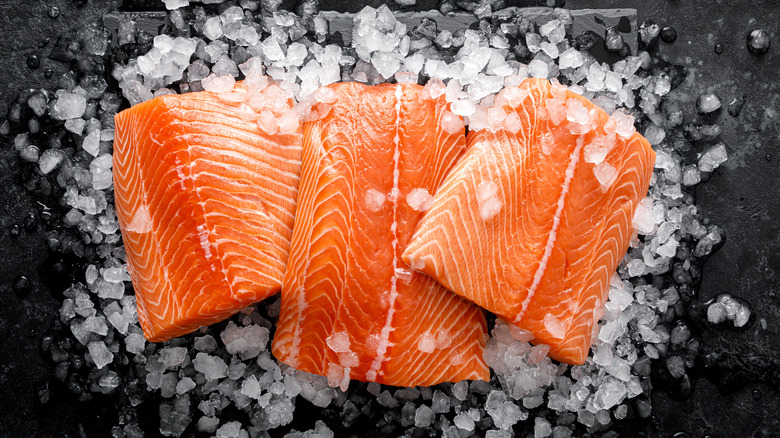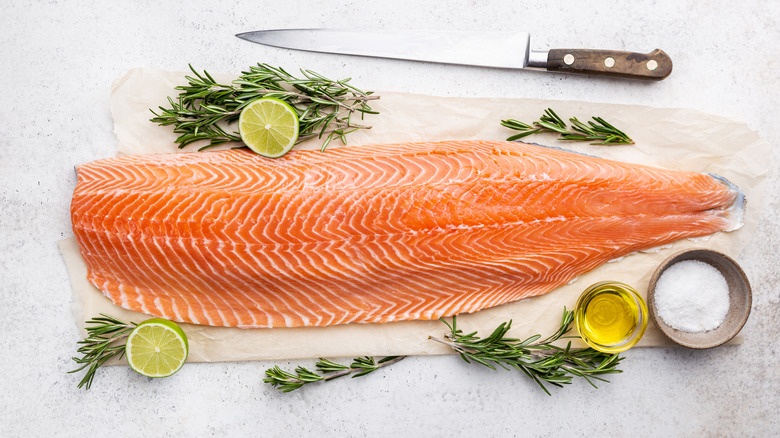How Long Can You Store Fresh Salmon In The Fridge?
Fish is great for you; It is widely considered a superfood and you can easily incorporate it into your diet through breakfast foods, fresh lunches, and hearty dinners. Salmon is the king of fish when it comes to cuisine in the United States. According to the Global Salmon Initiative, this seafaring animal, once Native to both the Atlantic and Pacific Coasts, is now mostly raised in fisheries, with 60% of our consumed salmon coming from farms. Salmon has gorgeous pink-hued flesh full of proteins and nutrients, but even the silvery skin of this fish is jam-packed with omega-3s, which reduce heart disease (via Mayo Clinic).
Everyone should be able to enjoy the health benefits and amazing taste of salmon, but it's expensive, so you might freeze a few pieces or keep the meat wrapped in your refrigerator to use for your next dinner party. Just don't keep your fish tucked away for too long. Salmon — like all meat — can and will go bad if you don't use it soon enough.
Know your salmon
First of all, you want to buy your salmon fresh so it will last longer. Fresh salmon is pink, firm, and doesn't smell overly fishy. You read that right, your salmon should not smell grossly fishy. Sure, it is bound to smell a little like the ocean, but it should absolutely not be stinking up your kitchen (via Miami New Times). If your salmon does smell too high heaven, it is a sure sign that it's gone bad.
According to the Pure Food Fish Market, you can store your fresh caught salmon for two days in the refrigerator before needing to move it to the freezer. But before you just shove the fish directly into your meat drawer, you need to prepare it so that not only your fish stays clean, but so does your fridge. First, run your salmon under cold water. After you pat the fish dry, the Fish Market suggests re-wrapping it in a layer of plastic and foil so it is airtight. Then place the fish in a designated meat drawer set at the appropriate temperature, which, according to Alaskan Salmon Company, is 32 degrees Fahrenheit.
The Center for Disease Control warns that eating bad fish can cause Scombroid poisoning, which presents like an allergic reaction with cramps, itching, and headaches. To prevent this, carefully clean and store your salmon, and do not eat it if it looks or smells bad.

